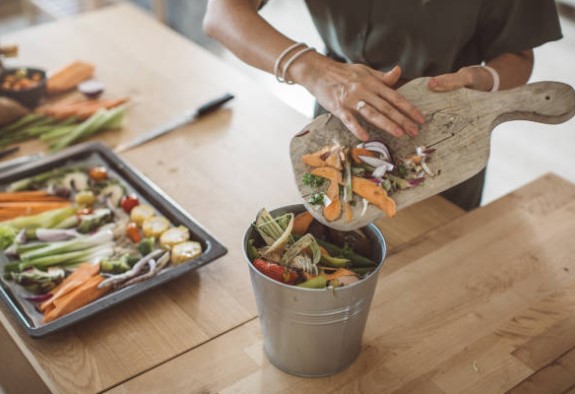
Dive into the fascinating world of composting cuisine, where kitchen scraps become the secret ingredients for cultivating a greener world. In this exploration, we’ll uncover the profound connection between sustainable food practices, composting, and the birth of earthly products that enhance our soil.
Flaming Earth Products is a company that supplies earth products. They transform your kitchen waste into useful earthly products like mulch and compost soil.
Unveiling the Magic of Composting
Imagine turning your banana peels, coffee grounds, and vegetable scraps into black gold for your garden. Composting cuisine is not just a trend; it’s a sustainable practice that nurtures the Earth. The process is surprisingly simple – a dance of microbes and decay that transforms kitchen waste into nutrient-rich compost, a gardener’s treasure.
The Dance of Microbes
Composting is a microbial ballet where bacteria, fungi, and other microorganisms perform a symphony of decomposition. As your kitchen scraps decompose, these tiny creatures work tirelessly, breaking down organic matter into humus – a dark, crumbly substance that resembles soil but is a powerhouse of nutrients.
From Waste to Gold
Your vegetable peels and eggshells are not merely garbage; they are raw materials for a natural alchemy that turns kitchen waste into a gardener’s delight. The resulting compost improves soil structure, enhances water retention, and provides a buffet of essential nutrients for plants.
The Sustainable Kitchen Connection
Composting cuisine is not just about waste reduction; it’s a gateway to sustainable living. By composting, you actively participate in a closed-loop system, where the food you consume gives back to the Earth, completing a cycle of sustainability.
Reducing Food Waste
In a world where food waste is a pressing issue, composting has become a hero. Instead of contributing to landfills, your kitchen scraps embark on a journey to become valuable resources, nourishing the soil and fostering a circular economy within your own home.
Closing the Loop
Sustainable food practices extend beyond composting; they encompass mindful consumption, supporting local agriculture, and minimizing the carbon footprint of your meals. Composting cuisine is a tangible way to close the loop, ensuring that your kitchen’s impact on the environment is a positive one.
Earthly Products: Beyond Compost
The term “earthly products” transcends the compost pile; it signifies a broader range of sustainable practices and products derived from the Earth’s bounty.
Eco-Friendly Alternatives
Embrace earthly products in your kitchen by opting for eco-friendly alternatives. From reusable containers to biodegradable utensils, small changes in your daily life contribute to a more sustainable future.
Farm-to-Table Connection
Supporting local farmers establishes a direct link between your plate and the Earth. By choosing locally sourced ingredients, you reduce the environmental impact of transportation and promote a healthier, more resilient community.
Cultivating a Greener World
Composting cuisine is a gateway to cultivating a greener world, one kitchen at a time. As you embark on this journey, consider these practical tips to maximize your impact.
Practical Tips for Composting Cuisine
- Balancing Act: Maintain a balance between green (nitrogen-rich) and brown (carbon-rich) materials for optimal composting.
- Compost Bin Basics: Invest in a compost bin with proper aeration and drainage to facilitate the decomposition process.
- No-No List: Avoid composting meat, dairy, and oily foods, as they can disrupt the balance and attract unwanted pests.
- Patience is a Virtue: Composting takes time, so be patient and let nature work its magic.
- Educate and Inspire: Share your composting journey with friends and family to inspire others to join the green revolution.
READ ALSO: Dining In Campers: Cook Tasty Meal
Conclusion: A Call to Action
Composting cuisine is more than a trend; it’s a transformative practice that empowers individuals to be stewards of the Earth. As you embrace this eco-friendly journey, remember that each kitchen has the power to cultivate a greener world. Let’s join hands in creating a sustainable legacy for future generations.

